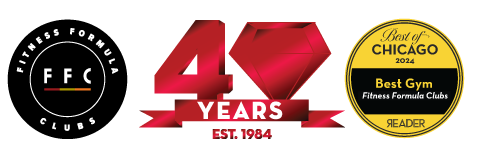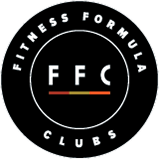How To Enhance Your Longevity Through Nutrition
In 1950, life expectancy in the United States was between 60-70 years of age. In 2015, it was between 70-80 years of age. The global average life expectancy increased from 46 years to 71 years over that same timeframe. This might not be new information to most – people are living longer.
These increases in life expectancy have helped us in many ways. We’re getting to see grandkids start their careers and their own families. We’re spending more time at retirement age, some of us shifting from our careers to enjoy hobbies and slowing down. But there is a difference between lifespan and healthspan. Are we living the fullest life in older age? Are we maximizing this extra time and feeling great during it? According to the American Heart Association, “healthspan—aka the number of years a person can expect to live in relatively good health, free of chronic disease and disabilities of aging—is currently 66 years.” This means there’s a several year difference in merely living and in thriving.
This difference can’t be explained by just one factor, and will vary based on social determinants of health such as race, socioeconomics, and location. However, when it comes to nutrition, there are a few specific things we can do to increase our own healthspan, and I’ll dive deeper into each one in this article:
- Eating more whole foods and less ultra processed foods
- Maintaining (or building) muscle mass as you age
- Reducing alcohol intake

Eating more whole foods and less ultra-processed foods
As Michael Pollen said best, “Eat food, not too much, mostly plants.” The basis of nutrition really is as simple as that, but that doesn’t mean it’s easy! Our fast-paced society lends much better to foods that have been ultra-processed, such as packaged snacks, restaurant meals and sugary drinks.
Ultra-processed foods are those that have been changed in a way that takes away important nutrients (think white bread) or adds ingredients that are poor for our health (think of the laundry list of ingredients that you can’t understand on some food labels). By consuming more whole foods and less ultra-processed foods, you’re providing your body with fiber for optimum gut health (which leads to brain health, immunity, and more!), micronutrients to make sure your body machine is working properly, and water to hydrate you. Here are some tips on how to incorporate more whole foods easily into your day:
- Buy nature’s convenience foods such as bananas, apples, pears, carrots and celery and keep it on the counter or at eye level in the fridge.
- Let the grocery store do some of the prep for you such as pre-made guacamole and hummus, hard boiled eggs, pre-chopped vegetables, and Sargento’s Balanced Breaks portioned snacks.
- When eating out with friends or family, choose a protein source (chicken, fish, eggs, beans, turkey) paired with vegetables (baked potato, side salad, roasted seasonal vegetables). These options tend to have less processed carbohydrates and keep you full for longer!
Related: Simple Ways To Incorporate Plant-Based Proteins Into Your Diet
Maintaining (or building) muscle mass as you age
It is never too late to start an exercise routine! The recommendation for optimum health is 150-220 minutes of moderate to intense activity every week. I also recommend that you incorporate strength training 2-3 times a week. This is because exercise isn’t only good for our heart, it’s also a chance to build or maintain muscle mass, which has been shown to protect our bones, keep us at a healthy weight and increase healthspan as we age. In addition to exercise, incorporating enough protein throughout the day will help in this goal. Here are some tips on how to easily eat enough protein:
- Aim for a serving of protein at least 3 times per day. This can come from meat, seafood, legumes, nuts, seeds or dairy products.
- Have ready-to-eat protein available at home, such as plain Greek yogurt (if you absolutely need a flavor, try Siggi’s or Chobani – less sugar!), canned tuna or salmon, hard boiled eggs, nuts and seeds, roasted chickpeas, hummus or pre-made protein shakes (Fairlife is a great option).
Related: What You Should Know Before Taking Dietary Supplements
Reducing alcohol intake
Alcohol inhibits absorption of nutrients (specifically thiamin, vitamin B12, folic acid, and zinc), disrupts sleep quality, and may lead to malnutrition and increased risk of heart disease, stroke, type 2 diabetes and several types of cancer. It’s no wonder, then, that it can significantly decrease our healthspan! For most people, it is okay to drink alcohol in moderation, however I suggest listening to your body on how you feel the next day and if you need to reduce your intake. Here are some tips on how to reduce your alcohol intake:
- Hydrate while drinking alcohol! For every alcoholic drink, aim for 1-2 glasses of water in between. This will help keep you hydrated and overall drink less alcohol in the given timespan.
- Try non-alcoholic alternatives such as club soda with a splash of lime or grapefruit juice, non-alcoholic beers or iced tea.
- Extend your alcoholic drinks by adding LaCroix or Spindrift to cocktails, sparkling water to cold wine or simply sipping slower!
- Find other activities to socialize with friends and family. Some of my favorites are going on walks, grabbing coffee or tea and taking a class to learn something new together.
Increasing your healthspan does not need to be complicated! Choose 1-2 of these ideas to start this week, and slowly build them into your lifestyle. Let us know how it’s going on Instagram & reach out to Amy for a complimentary discovery session to learn more about how to feel your best, no matter your age!
Resources:
https://ourworldindata.org/life-expectancy#twice-as-long-life-expectancy-around-the-world

Post written by FFC Registered Dietitian Amy Carson, RDN, LDN, CPT.


